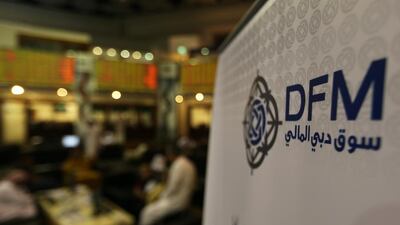Some sectors are more stressed than others and the brokerage sector in the UAE is one of them. Just as the UAE is overbanked, it is also overbrokered.
Built on soaring volumes and value traded before the global financial crisis, the industry was aided by heavy retail participation mostly trading for speculative purpose than investing reasons. Lack of investor sophistication meant more volume and value traded and, hence, juicy commissions. No wonder more than 100 players were attracted to set up in what was thought to be a super growth industry. The narrative has changed completely now thanks to the global financial crisis and low oil prices.
Despite its recent rally, the price of a barrel of Brent crude, at US$55.25 yesterday afternoon, is still more than half its peaks of mid-2014. And the Dubai Financial Market General Index is about 43 per cent below its peak level in 2008.
UAE stock-trading value peaked at US$150 billion in 2007. From that peak, the industry fell to a low point of $15bn in 2011 and was about $50bn last year. Of course, the industry got a boost in 2013-14 thanks to the inclusion of the UAE in the MSCI Emerging Market Index, opening doors for foreign investment interest.
Imagine a market size as small as $15bn in value traded to be shared by more than 100 players. That obviously leaves very little on the table. As the pie size decreases, the money one company can make also dwindles. Since this is a service industry requiring high level of human capital, fixed-cost factor will make the business model quickly unviable if we witness such contraction in value traded.
As a consequence, the number of players halved to 49 last year. Despite this contraction, the sector still looks overbrokered.
According to a recent study by Marmore, the consultancy where I am managing director, the industry will experience a value traded of about $112bn by 2020, a level at which more players will close shop. From a revenue point of view, the brokerage sector is estimated to have earned about $155 million last year and this is now expected to reach about $336m by 2020, according to our study. Given the anaemic growth in revenue, the fixed-cost intensive nature of the industry will drive more players to seek consolidation.
The case for consolidation is also strong for reasons beyond liquidity.
All GCC stock markets, including those in the UAE, have low institutional participation. Attracting institutional investors – domestic and foreign – requires market mechanisms on par with other developing and developed markets, including corporate governance and transparency. Institutional investors also look for greater and deeper research coverage on companies, a key service provided by sell-side brokers. Only about 30 per cent of stocks listed in the UAE are covered by analyst research. The dearth of avenues to hedge risk through derivatives and low product diversity also discourages investors.
Brokers who would want to successfully navigate in this environment should seek to attract institutional investors through roadshows and research capabilities. They must use technology to deliver services. They must lobby with regulators to introduce hedging instruments. They need size to do all of this and, hence, consolidation after all is not a bad idea in this scenario.
MR Raghu is the managing director of Marmore Mena Intelligence, a research house focused on conducting Mena-specific business, economic and capital market research.
business@thenational.ae
Follow The National's Business section on Twitter

